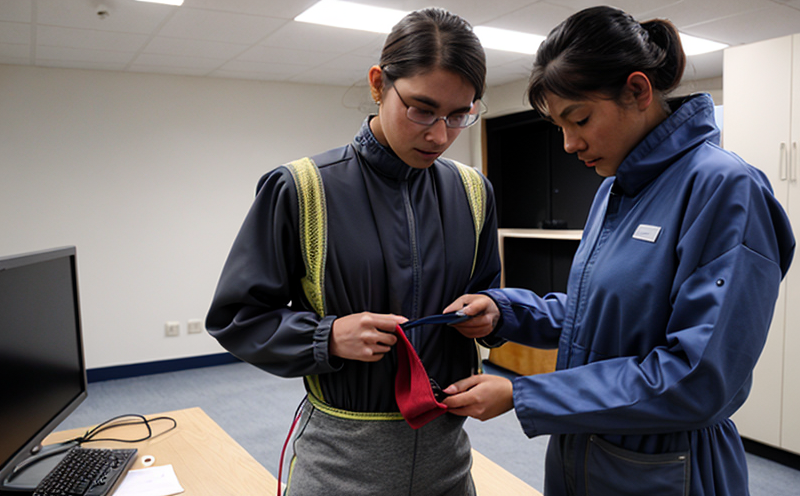Antimicrobial performance of surgical drape textiles
The antimicrobial performance of surgical drape textiles is a critical aspect in healthcare settings. Surgical drapes serve as essential protective barriers, preventing contamination between the surgical site and the environment during procedures. These textiles must be capable of inhibiting or killing microorganisms effectively to ensure patient safety and reduce the risk of post-operative infections.
Antimicrobial properties are especially important for surgical drape textiles due to their prolonged contact with skin and potential exposure to various pathogens. The efficacy of these antimicrobials is often evaluated through specific testing protocols that mimic real-world conditions in healthcare environments. Understanding the performance parameters is crucial for manufacturers, quality managers, compliance officers, and R&D engineers involved in material selection and process optimization.
The testing methodologies used to assess antimicrobial performance are based on international standards such as ISO 21789:2018, which provides guidelines for determining the efficacy of antimicrobial textiles. Compliance with these standards ensures that products meet stringent requirements set forth by regulatory bodies like the FDA and EU directives.
Testing typically involves exposing the surgical drape to specific microorganisms under controlled conditions and then assessing the reduction in microbial load after treatment. This process helps identify any potential weaknesses or improvements needed in product design and manufacturing processes.
Manufacturers must ensure that their products not only comply with relevant regulations but also provide consistent performance across batches. By conducting thorough testing at every stage of production, companies can maintain high standards of hygiene and effectiveness for their surgical drapes.
The importance of antimicrobial performance cannot be overstated in today’s healthcare landscape where hospital-acquired infections (HAIs) remain a significant challenge. Effective prevention strategies like using properly treated surgical drapes play an integral role in minimizing HAIs, thereby improving patient outcomes and reducing costs associated with extended hospital stays or readmissions.
Understanding the critical role of antimicrobial performance in surgical drape textiles requires knowledge about various factors influencing this characteristic, including fabric composition, manufacturing processes, and post-treatment treatments. Manufacturers must consider these elements carefully when developing new products to ensure they meet both regulatory requirements and customer expectations regarding hygiene and effectiveness.
In summary, the evaluation of antimicrobial performance in surgical drapes is essential for maintaining sterile conditions during operations while ensuring patient safety by reducing the risk of infections. Compliance with recognized standards such as ISO 21789:2018 helps manufacturers produce reliable products that contribute positively to healthcare quality.
Why It Matters
The importance of antimicrobial performance in surgical drape textiles cannot be overstated, particularly given the increasing prevalence of antibiotic-resistant bacteria and the associated challenges they pose for modern medicine. Surgical drapes act as a first line of defense against pathogens entering the sterile field during procedures.
- Reduces Infections: Properly treated surgical drape textiles can significantly decrease the incidence of post-operative infections, which are linked to extended hospital stays and increased healthcare costs.
- Patient Safety: By minimizing microbial contamination in operating rooms, these drapes contribute to safer surgeries and better patient outcomes.
- Regulatory Compliance: Adhering to international standards ensures that products meet stringent requirements set forth by regulatory bodies like the FDA and EU directives.
The ongoing threat of antibiotic resistance underscores the necessity for effective antimicrobial treatments in surgical drapes. As new strains emerge, it becomes increasingly vital to develop and implement robust testing protocols that can accurately measure the performance of these textiles under realistic conditions.
Moreover, ensuring compliance with relevant standards not only protects patients but also enhances the reputation of healthcare providers who use such products. This alignment with best practices fosters trust among both staff members and stakeholders involved in surgical procedures.
Benefits
- Better Patient Outcomes: Effective antimicrobial performance leads to reduced post-operative infections, which can result in shorter hospital stays and lower treatment costs.
- Enhanced Sterility: Properly treated surgical drapes help maintain a sterile environment during operations, thereby minimizing the risk of cross-contamination between patients or within operating rooms.
- Regulatory Compliance: Adherence to international standards ensures that products meet rigorous quality control measures and regulatory requirements.
- Improved Safety: By reducing microbial contamination in surgical settings, these drapes contribute significantly to overall patient safety.
- Ethical Responsibility: Using antimicrobial textiles responsibly aligns with ethical practices aimed at maximizing positive health outcomes while minimizing harm.
- Cost Efficiency: While initial investments may seem high, long-term savings can be achieved through reduced healthcare expenses linked to infections or other complications.
The combination of these benefits makes antimicrobial performance testing an indispensable component in the development and production of surgical drape textiles. It plays a crucial role in enhancing patient safety, improving operational efficiency within hospitals, and contributing positively towards public health objectives.
Eurolab Advantages
At Eurolab, we specialize in providing comprehensive testing services for antimicrobial performance of surgical drape textiles. Our state-of-the-art facilities equipped with advanced instrumentation allow us to conduct rigorous evaluations that meet international standards such as ISO 21789:2018.
Our experienced technical staff ensures accurate and reliable results, offering valuable insights into the effectiveness of various antimicrobial treatments used in surgical drapes. This expertise enables manufacturers to optimize their products continuously based on real-world performance data.
We pride ourselves on delivering timely reports that include detailed analysis of test results along with recommendations for improvement where necessary. By leveraging our extensive experience and cutting-edge technology, Eurolab provides unparalleled support throughout the entire product development lifecycle.
Our commitment to quality extends beyond just technical proficiency; we also maintain strong relationships with regulatory authorities ensuring seamless integration into global supply chains. With a focus on innovation and excellence, Eurolab remains at the forefront of industry trends, providing solutions tailored specifically for your unique needs.





